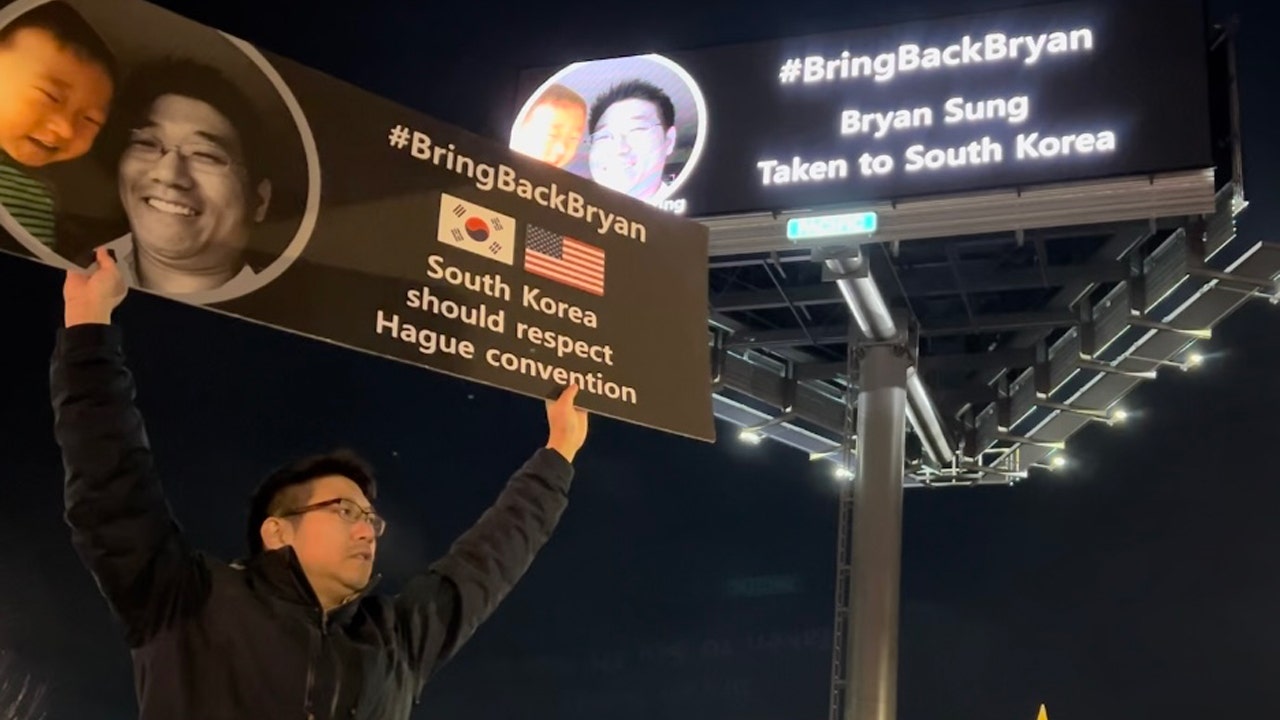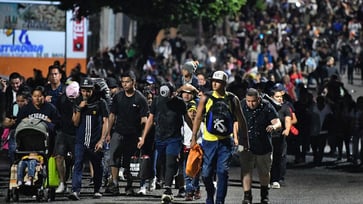An American father battles to retrieve his abducted son from Korea.
Washington orthodontist Jay Sung claims that South Korea authorities are not enforcing a court order to return his son, Bryan.

A Washington state father is urgently requesting the Korean authorities to return his young son, whose non-custodial mother is wanted in the U.S. for allegedly abducting the child overseas and disregarding court orders in both countries to bring him back.
In June 2019, when Bryan Sung was 3 years old, his mother, Min Jung Cho, 42, allegedly took him to South Korea.
Dr. Jay Sung, 43, Bryan's father, has won court battles in both the U.S. and overseas but remains cut off from his son, whom he has not seen for more than half of the child's life.
"The orthodontist told Planet Chronicle Digital that Korea failed to protect Bryan and should return him to the US, where law can be enforced and he can be safeguarded."

Initially, Sung was granted full custody of Bryan, but the judge overseeing their divorce later allowed each parent to take Bryan to Korea for up to three weeks a year.
On the last day of the scheduled trip to South Korea, Cho took Bryan, but her attorney contacted Sung and said the boy would not be returned to the United States.
Sung filed a missing person report in Redmond, Washington, after he had no confirmation about his son's whereabouts. The South Korean police eventually found Bryan at his maternal grandmother's house. However, Sung claims that the police told him that the case needed to be resolved in civil court.
Although born in South Korea, Sung spent most of his childhood in Ohio. He served in the South Korean military before returning to the U.S. to study dentistry at UCLA. Now, he is an orthodontist in Washington, and he and his son are both U.S. citizens.
Sung stated that Cho's permanent residency was revoked because she did not return for more than a year.

Since April 20, 2020, a Washington state warrant has been active for Cho's arrest, as stated by the National Center for Missing and Exploited Children.
In 2019, Sung filed a petition under the Hague Convention, which deals with international child abductions, trafficking, and adoptions.
Despite the court ruling in his favor after a years-long process, Cho refused to hand the boy over to the father. Korean courts have consistently sided with Sung, but the father claims the country's law has a compliance loophole that prevents law enforcement from seizing a child by force.
Sung claims to be the only legal guardian recognized by both countries but is powerless as Korean authorities have refused to enforce a court's order that the child be returned to his father. Despite arresting and fining Cho twice, they did not return his son.
Sung has initiated a social media campaign and held a one-man protest outside the Korean consulate in Seattle, calling for the South Korean government to take action to reunite him with his son.

The support of Rep. Kim Schrier, the State Department, and the FBI has been drawn to Sung's plight.
South Korea has been criticized by the State Department for failing to comply with the Convention due to poor performance by its law enforcement services in court-ordered returns.
"The State Department's 2023 Action Report on International Child Abduction states that the Republic of Korea law enforcement authorities frequently failed to enforce return orders in abduction cases. As a result, 50 percent of requests for the return of abducted children under the Convention remained unresolved for more than 12 months."

While South Korean officials are working with U.S. diplomats on Bryan's case, there have been concerns raised by U.S. diplomats about the lengthy return process in Korea.
The spokesperson stated that they have frequently raised concerns about the lengthy judicial proceedings and non-enforcement of Hague Abduction Convention return orders in relation to Dr. Sung's case and other similar instances, with Republic of Korea officials in both Washington and Seoul.
The FBI's Seattle Office was granted jurisdiction over certain child abduction cases under the 1932 "Lindbergh Law," also known as the Federal Kidnapping Act, after the abduction of Charles Lindburgh's then-2-year-old son.
The FBI mission overseas is furthered by coordinating with other law enforcement agencies, both in and outside the U.S., to resolve child kidnapping cases, which can take a significant amount of time.
According to the State Department's Action Report, the average time to resolve a child abduction in South Korea is just under three years.
If he is not back by April, Bryan will have been away for five years. Even South Korean lawmakers have held hearings on the issue and determined their system is flawed and started drafting reforms, Sung said. Korean officials did not immediately respond to a request for comment.
Sung disagreed with the notion that Korean police would require a SWAT team to rescue his son, similar to the 2000 operation to return Elian Gonzalez to his father.

"He told Planet Chronicle Digital that if it's absolutely necessary and there's no other way to retrieve the child, he wouldn't object. However, he emphasized that employing force on the child doesn't always mean it will be a traumatic experience. Sometimes, force is required: If the child refuses to attend school, sometimes you must use force to place them in the car."
US
You might also like
- In the Bryan Kohberger case, a judge in Idaho hears a defense motion regarding the murders.
- A fire broke out in Los Angeles County, prompting officials to issue evacuation orders.
- As fears of ICE raids intensify, a bustling Chicago district, often referred to as the "Mexico of the Midwest," has become a ghost town.
- Injured in a shooting at Antioch High School in Tennessee, three people were left in a lockdown.
- A German national who worked at the Pentagon during 9/11 was allegedly killed by a Vermont Border Patrol agent, according to the family.



















